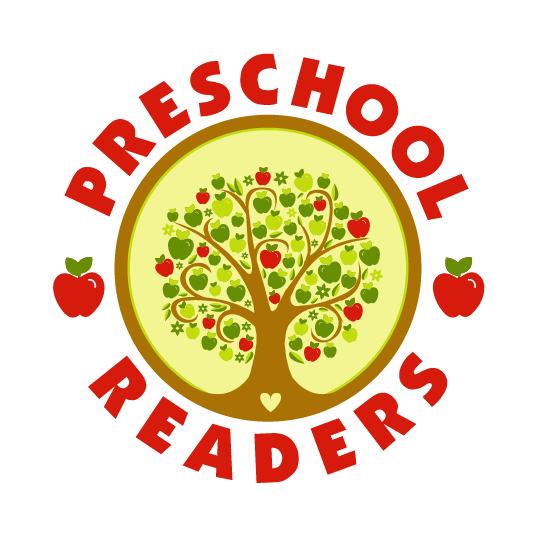Expert Interview
At Preschool Readers, we know there are a variety of factors that affect a child’s learning process. As a way to remain up to date and informed on best practices, we have an Expert Interviews series. In this series, we interview experts who provide tips/tricks and suggestions for parents of preschoolers. We hope you enjoy our interview with Alyssa Shafii Campbell, Speech-Language Pathologist and Director of Alyssa Campbell Therapies (ACT).

Name & Job Title: Alyssa Shafii Campbell, Speech-Language Pathologist and Director of Alyssa Campbell Therapies (ACT)
Business Name: Alyssa Campbell Therapies, PA
What Services Do You Provide and Whom Do You Serve: ACT provides a variety of services for children in the areas of speech, language, occupational, and feeding therapy. We offer screenings/evaluations; both individual and small group therapy; team collaboration with all members involved; consultations; teletherapy; and teacher/parent inservices. We offer all of this to families with the convenience of traveling to YOU, which usually looks like providing therapy in children’s homes, private schools, and daycares/preschools. We also see children ranging from the ages of birth up to 18 years old. For more information on our services, visit our website.
What Is Speech and Language Therapy: Speech and language therapy can help improve a variety of areas. Therapy can address articulation (production of speech sounds), language (expressive communication and listening comprehension), stuttering, social skills, vocal quality, and feeding.
What Are Some Signs Parents Can Look For To Determine If Their Preschooler Is In Need of Speech and Langauge Therapy: Some basic signs of a possible speech/language disorder for ages 3-5 are:
- not producing 3-4 word sentences at the age of 3
- has trouble playing and talking with others
- has no interest in books or drawing
- at the age of 3, speech is understood less than 75% of the time by an unfamiliar listener; at the age of 4, speech is understood less than 100% by an unfamiliar listener. Each speech sound should be produced correctly by a specific age. When a sound is misproduced past that age, therapy may be recommended.
Our website has some general milestones and the speech sound development chart you can review.
If you aren’t sure if your concerns are valid, it’s a good idea to contact a licensed Speech-Language Pathologist who could complete a speech/language screening or evaluation. My philosophy is “When in doubt, rule it out!” It has been proven that speech/language delays, which are detected and treated early in a child’s development, can be significantly reduced or completely resolved through early intervention.
What Are Some Everyday Activities Parents Can Do With Their Preschooler To Encourage Speech and Language Development: ANYthing can be turned into a speech/language activity. Talking is teaching! Your child is always learning from you in ways you do and don’t see.
Reading picture books together is a great way to engage your child! Using the pictures in stories, you can have your child: label items, follow directions by pointing to items you name, have your child “read” the story to you by describing the pictures. Reading books with your children introduces them to new vocabulary, inferencing skills (i.e., the boy has a frown on his face- how do you think he is feeling? why do you think he looks sad?); and predicting skills (i.e., what do you think will happen on the next page?). When the story is over, you can work on recall and sequencing by asking “what happened first, next, last?; what was the story about?”
Mealtime is a great time to work on speech/language too! This can sometimes be the most social event in one’s home. Use this time to talk about your day. Have your child practice listening and answering questions. This helps them learn the give-and-take of conversing. Mealtime has endless vocabulary you can model for your child as well: food names, adjectives to describe the food (i.e., crunchy, messy), action words (chewing, drinking), and opposites (i.e., hot/cold, sweet/sour).
Singing songs: This is a fun way to encourage vocalizing sentences, rhyming, helps with memory. sing the song and leave the last word off so your child will finish the line for you. The best part is you can sing anywhere- car, bathtub, washing your hands!
Cooking: It can be something simple like making pudding. This can work on new vocabulary, following directions, and then you have them retell the sequence it took to make the item.
Board games: This can teach turn-taking, rules, and strategies.
What Books Do You Recommend Parents Read To Their Preschooler To Promote Language Development and Vocabulary: It’s SO hard to narrow it down! But some of my favorites are:
- Dear Zoo by Rod CampbellPeanut Butter and Cupcake by Terry Border: social skills, making new friends
- The Pout-Pout Fish by Deborah Diesen: adjectives, higher-level vocabulary, emotions
And Just For Fun…What Is One Word You Would Use To Describe Yourself As A Preschooler: Shy!
How Can Parents Connect With You:
Phone: 813-784-8802
Email: info@alyssacampbelltherapies.com
Website: alyssacampbelltherapies.com
Instagram: @alyssacampbelltherapies
Facebook: www.facebook.com/AlyssaCampbellTherapies

As an Amazon Associate, Preschool Readers may earn from qualifying purchases.

